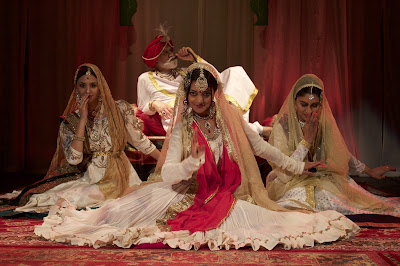As a Peter Gill and Omnibus first-timer, I was really looking forward to my trip to see ‘Small Change’. The Omnibus is a lovely little theatre, situated a close walk from Clapham Common. The set, designed by Liam Bunster, was a highlight of the evening for me. With the seating arranged in thrust, the white stage allowed us to be transported to various locations with the aid of large, industrial-looking rectangle boxes. With the piece being based on the east side of Cardiff, near the docks, it gave you a clear sense of location.
Being written and staged at the Royal Court in 1976, the writing still maintains a modern pragmatism and manages to simultaneously get to the point very quickly whilst also skating around the bigger questions. We explore themes of time, class and gender roles to name a few.



